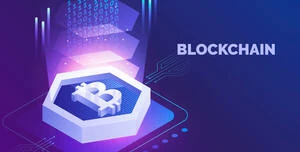This plan includes
- Instant access to 11,000+ online courses
- Play & Pause Course Videos
 HD Video Recorded Lectures
HD Video Recorded Lectures- Learn on Mobile/PC/Tablet
- Quizzes and Real Projects
- Lifetime Course Certificate
- Instructor Chat Support
- Cancel Plan Anytime
What you'll learn?
- Blockchain is the latest buzzword, and it’s not just about cryptocurrency any more
- We'll start simple, learning all about blockchain and Ethereum; for those who want to dig deeper, you'll also learn to code a smart contract using a real-world example
- For the beginners, you'll walk you through the parts of Ethereum, coding basics, the software development life cycle, and everything you need to know to create your very own dApp, or decentralized application
- For the more experienced, you can skip right to where you code your own smart contract using Solidity
- We'll cover the tools you'll need to write smart contracts: Go Ethereum (Geth) blockchain client, Ganache test blockchain, Truffle development environment, and Microsoft Visual Studio Code IDE
- You'll also create an Ethereum wallet using MetaMask and learn how to connect to private and public blockchains, including mainnet
- Understand blockchain mining, tokens and ether (ETH), initial coin offerings (ICOs), the Ethereum Virtual Machine, gas prices and limits, and more
Course Overview
Mike Meyers and the Total Seminars Team, your source for the best IT industry courses, bring you TOTAL: Building an Ethereum Blockchain App with one of our most popular authors, Michael Solomon, Ph. D., CISSP, PMP, CISM.
This is NOT a boring voice-over-PowerPoint course. Michael speaks to you and presents the material in an engaging interactive style that will keep you interested and make it easier to understand. Check out the free sample lectures and you will see the difference.
With 30+ years of experience in security, privacy, blockchain, and data science, and an energetic presentation style, Michael takes his proficiency and consolidates it into this informative and engaging course.
This course starts with an explanation of blockchain and Ethereum and their applications. You'll then learn how to create an actual Ethereum dApp (decentralized application) using a real world supply chain example. This course dives into coding a "smart contract," and Michael walks through the steps one at a time, so this course is great for novices and experienced programmers alike.
WHY SHOULD I TAKE THIS COURSE?
Did you know:
-
Spending on blockchain solutions is estimated to jump from $1.5 billion in 2018 to over $16 billion in 2024*
-
26% of companies plan on investing between $1 million and $5 million in blockchain technology*
-
32% of companies are currently in the development stage of blockchain projects*
Whether you're an executive who can see the trends happening here, or a tech who's interested in understanding this new technology, or a geek looking to expand their coding knowledge, this course is for you.
The first wave of the "Bitcoin blockchain" has come and (mostly) gone, but now there's a greater implication for blockchain technology, and Ethereum is the word everyone needs to know. Find out how this technology will change YOUR industry. Learn to code smart contracts that will revolutionize business processes as we know them today.
What are you waiting for? Grab this course now!
Pre-requisites
- There are no specific prerequisites as the course covers all the topics in detail
- A basic familiarity with programming, particularly JavaScript, is helpful but not necessary
Target Audience
- Everyone nowadays should have a basic understanding of blockchain technology and the way it can revolutionize many industries, this course will teach you all about blockchain
- For those looking for more, this course will also take you through how to write an Ethereum smart contract using the Solidity language
- Anyone who is interested in the fascinating technology behind blockchain, and how to create applications that offer greater transparency, traceability, efficiency, and resilience while lowering cost
Curriculum 102 Lectures 06:54:34
-
Section 1 : What is Blockchain?
- Lecture 2 :
- The Beginning of Blockchain
- Lecture 3 :
- Currency and Cryptocurrency
- Lecture 4 :
- Why Use the Blockchain?
- Lecture 5 :
- Blockchain Data and Blocks
- Lecture 6 :
- Blockchain Immutability
- Lecture 7 :
- Blockchain Consensus
- Lecture 8 :
- Building the Blockchain Story
- Lecture 9 :
- Hashes
- Lecture 10 :
- What is a Chain of Blocks?
- Lecture 11 :
- Finding the Nonce
- Lecture 12 :
- Blockchain Mining
- Lecture 13 :
- Arriving at Consensus
- Lecture 14 :
- Public vs. Private Blockchains
- Lecture 15 :
- Distributed Processing and Blockchain Solutions
-
Section 2 : What is Ethereum?
- Lecture 1 :
- Introduction to Ethereum
- Lecture 2 :
- Ethereum in Financial Services
- Lecture 3 :
- Ethereum in Digital Identity Management
- Lecture 4 :
- Ethereum in Industry Applications
- Lecture 5 :
- Ethereum in Government
- Lecture 6 :
- Ethereum Smart Contracts
- Lecture 7 :
- Ether and the Initial Coin Offering (ICO)
- Lecture 8 :
- Decentralized Autonomous Organization (DAO)
- Lecture 9 :
- Building Blockchain Apps
- Lecture 10 :
- The Ethereum Ecosystem
-
Section 3 : The Ethereum Ecosystem & the Development Lifecycle
- Lecture 1 :
- Parts of the Ethereum Blockchain
- Lecture 2 :
- Smart Contract Languages
- Lecture 3 :
- Smart Contract
- Lecture 4 :
- What are Virtual Machines?
- Lecture 5 :
- The Ethereum Virtual Machine (EVM)
- Lecture 6 :
- Fueling Your Code with Gas
- Lecture 7 :
- Tools for Ethereum SDLC
- Lecture 8 :
- Blockchain Client
- Lecture 9 :
- Writing and Testing Your Code, Part 1
- Lecture 10 :
- Writing and Testing Your Code, Part 2
-
Section 4 : Ethereum Development Tools
- Lecture 1 :
- Your Ethereum Development Toolbox
- Lecture 2 :
- Installing Geth Lab (CLI Blockchain Client)
- Lecture 3 :
- Installing Ganache Lab (Test Blockchain)
- Lecture 4 :
- Installing Truffle Lab (Development Environment and Testing Framework)
- Lecture 5 :
- Installing Microsoft Visual Studio Code Lab (IDE)
-
Section 5 : Your Ethereum Wallet
- Lecture 1 :
- What is an Ethereum Wallet?
- Lecture 2 :
- Types of Ethereum Wallets
- Lecture 3 :
- Web and Desktop Wallets
- Lecture 4 :
- Mobile, Hardware, and Paper Wallets
- Lecture 5 :
- Installing MetaMask
-
Section 6 : Building Your First Ethereum App
- Lecture 1 :
- Preparing Your First Truffle Project
- Lecture 2 :
- Writing a Simple Smart Contract
- Lecture 3 :
- Compiling Your Simple Smart Contract
- Lecture 4 :
- Deploying Code and Invoking Functions
-
Section 7 : Learning About Smart Contracts
- Lecture 1 :
- Smart Contracts Review
- Lecture 2 :
- What is Supply Chain?
- Lecture 3 :
- Supply Chain Challenges and Blockchain Solutions
- Lecture 4 :
- Blockchain Solution Examples
- Lecture 5 :
- Ethereum Tokens
- Lecture 6 :
- Your Supply Chain Project
- Lecture 7 :
- Exploring Solidity
- Lecture 8 :
- Defining Types of Data
- Lecture 9 :
- Data Types Lab
- Lecture 10 :
- Solidity Data Modifiers, Part 1
- Lecture 11 :
- Solidity Data Modifiers, Part 2
- Lecture 12 :
- Revisiting Gas
- Lecture 13 :
- Controlling Flow
- Lecture 14 :
- Handling Errors
-
Section 8 : Your Supply Chain Smart Contract dApp
- Lecture 1 :
- Designing Your Supply Chain App
- Lecture 2 :
- What are dApps?
- Lecture 3 :
- Token Smart Contract Details
- Lecture 4 :
- Supply Chain Smart Contract Details
- Lecture 5 :
- Smart Contract Road Map
- Lecture 6 :
- Token Smart Contract Data Lab, Part 1
- Lecture 7 :
- Token Smart Contract Data Lab, Part 2
- Lecture 8 :
- Supply Chain Smart Contract Data Lab, Part 1
- Lecture 9 :
- Supply Chain Smart Contract Data Lab, Part 2
- Lecture 10 :
- Token Smart Contract Functions Lab, Part 1
- Lecture 11 :
- Token Smart Contract Functions Lab, Part 2
- Lecture 12 :
- Supply Chain Smart Contract Functions Lab, Part 1
- Lecture 13 :
- Supply Chain Smart Contract Functions Lab, Part 2
- Lecture 14 :
- Using Events
- Lecture 15 :
- Implementing Events
- Lecture 16 :
- More on Ownership
- Lecture 17 :
- Designing for Security
- Lecture 18 :
- Implementing Minimal Functionality
-
Section 9 : Testing Ethereum Apps
- Lecture 1 :
- Blockchain dApp Testing
- Lecture 2 :
- Deploying Your dApp to a Test Blockchain Lab
- Lecture 3 :
- Writing Tests for Ethereum dApps
- Lecture 4 :
- Command-Line Testing Lab, Part 1
- Lecture 5 :
- Command-Line Testing Lab, Part 2
- Lecture 6 :
- Command-Line Testing Lab, Part 3
- Lecture 7 :
- JavaScript Testing
- Lecture 8 :
- Logging and Handling Errors
- Lecture 9 :
- Logging Activity in Smart Contracts
- Lecture 10 :
- Fixing Bugs in a dApp
-
Section 10 : Deploying and Maintaining Ethereum Apps
- Lecture 1 :
- Test Blockchains
- Lecture 2 :
- The Live Blockchain (Mainnet)
- Lecture 3 :
- Connecting to Multiple Blockchains and Infura Lab
- Lecture 4 :
- Configuring Truffle and Infura Lab
- Lecture 5 :
- Funding Your Account Lab
- Lecture 6 :
- Deploying to the Live Blockchain
-
Section 11 : Integrating Non-Blockchain Apps with Ethereum
- Lecture 1 :
- Blockchain and Database Storage
- Lecture 2 :
- Execution and Flow in dApps and Traditional Applications
- Lecture 3 :
- Blockchain Incorporation Design Goals
- Lecture 4 :
- Integration Considerations for Incorporating Blockchain
- Lecture 5 :
- Interface Considerations for Incorporating Blockchain
Our learners work at
Frequently Asked Questions
-
How do i access the course after purchase?
It's simple. When you sign up, you'll immediately have unlimited viewing of thousands of expert courses, paths to guide your learning, tools to measure your skills and hands-on resources like exercise files. There’s no limit on what you can learn and you can cancel at any time. -
Are these video based online self-learning courses?
Yes. All of the courses comes with online video based lectures created by certified instructors. Instructors have crafted these courses with a blend of high quality interactive videos, lectures, quizzes & real world projects to give you an indepth knowledge about the topic. -
Can i play & pause the course as per my convenience?
Yes absolutely & thats one of the advantage of self-paced courses. You can anytime pause or resume the course & come back & forth from one lecture to another lecture, play the videos mulitple times & so on. -
How do i contact the instructor for any doubts or questions?
Most of these courses have general questions & answers already covered within the course lectures. However, if you need any further help from the instructor, you can use the inbuilt Chat with Instructor option to send a message to an instructor & they will reply you within 24 hours. You can ask as many questions as you want. -
Do i need a pc to access the course or can i do it on mobile & tablet as well?
Brilliant question? Isn't it? You can access the courses on any device like PC, Mobile, Tablet & even on a smart tv. For mobile & a tablet you can download the Learnfly android or an iOS app. If mobile app is not available in your country, you can access the course directly by visting our website, its fully mobile friendly. -
Do i get any certificate for the courses?
Yes. Once you complete any course on our platform along with provided assessments by the instructor, you will be eligble to get certificate of course completion.
-
For how long can i access my course on the platform?
You require an active subscription to access courses on our platform. If your subscription is active, you can access any course on our platform with no restrictions. -
Is there any free trial?
Currently, we do not offer any free trial. -
Can i cancel anytime?
Yes, you can cancel your subscription at any time. Your subscription will auto-renew until you cancel, but why would you want to?
Instructor

467215 Course Views
6 Courses



 Tech & IT
Tech & IT
 Business
Business
 Coding & Developer
Coding & Developer
 Finance & Accounting
Finance & Accounting
 Academics
Academics
 Office Applications
Office Applications
 Art & Design
Art & Design
 Marketing
Marketing
 Health & Wellness
Health & Wellness
 Sounds & Music
Sounds & Music
 Lifestyle
Lifestyle
 Photography
Photography
























